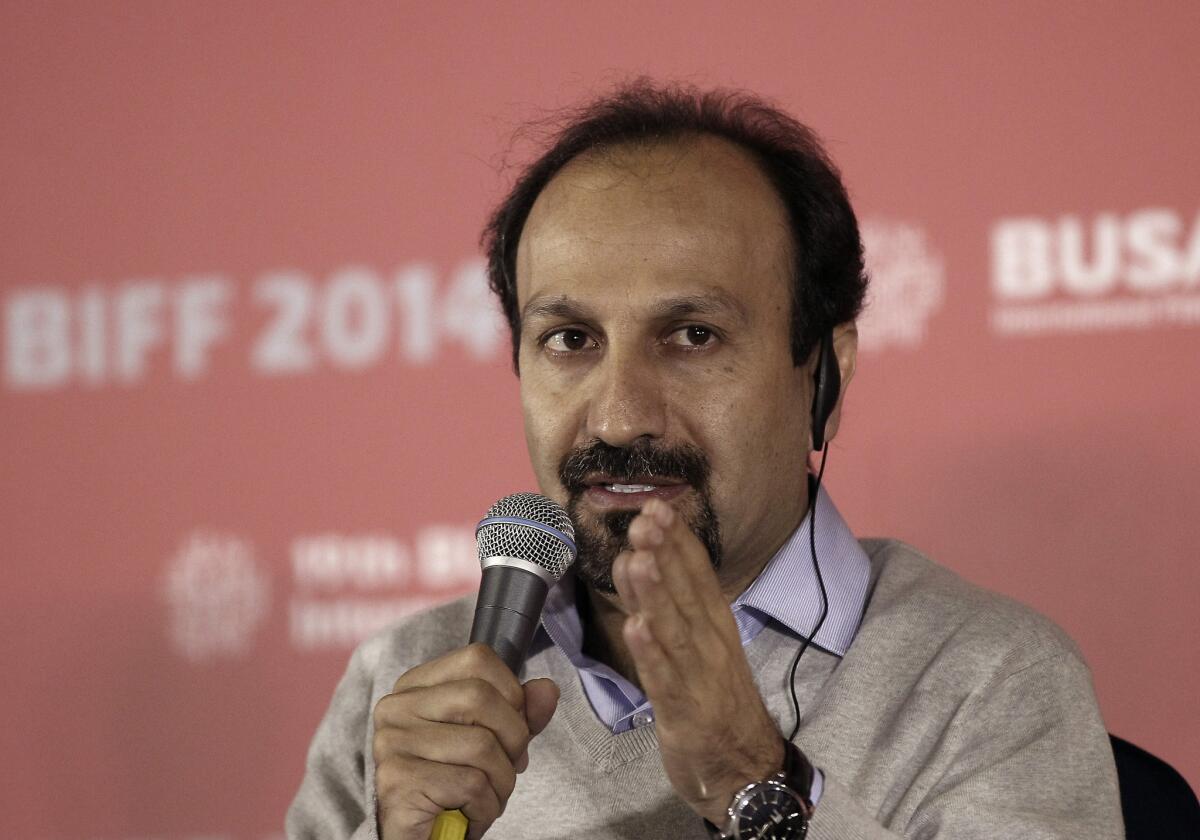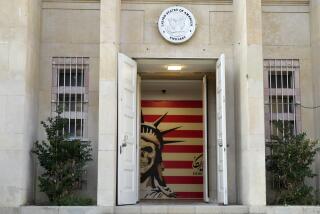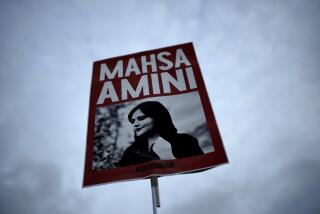Iranian filmmakers get bad reviews at home over nuclear deal statement

As part of a broader charm offensive toward the outside world, Iran’s government last month enlisted six of the country’s top filmmakers to help persuade the West to give Iran more lenient terms in negotiations over its nuclear program.
The public relations campaign made a big splash abroad. At home, critics savaged it.
Since the reformist government of President Hassan Rouhani took office 14 months ago, it has sought to present a more appealing face to the West. Iranian officials hoped they could use the filmmakers’ star power for a people-to-people appeal as a Nov. 24 deadline looms for Iran and six world powers to reach a nuclear deal.
On an English-language website, No2NoDeal.com, and on social media such as Twitter and Facebook, the filmmakers argue that the West should be flexible because “there is no deal that’s worse than no deal.”
Only with an agreement, they contended in a signed statement, can the West prevent Iran from adding new nuclear facilities or uranium-enriching centrifuges or, more important, from gaining bomb-making capability.
The group includes Asghar Farhadi, who won the 2012 foreign film Oscar for “A Separation”; Abbas Kiarostami, acclaimed for “Taste of Cherry”; Rakhshan Bani-Etemad, whose “Tales” won best screenplay at this year’s Venice Film Festival; and Majid Majidi, director of “The Color of Paradise.”
The campaign got wide notice in Western news media and complemented the arguments of some Western advocates, such as former British Foreign Secretary Jack Straw, who has said that missing the chance for a deal could be “one of the foreign policy blunders of the decade.”
But while the filmmakers didn’t use Iranian social media and their website statement wasn’t in Persian, Iranian hard-liners quickly learned about it and voiced their objections. Deeply suspicious of a deal, they saw the campaign as an attempt to wrest concessions from Iran as well as the West.
Hoshang Tale, a former member of parliament, portrayed it as an effort to get Iran to sign a concessionary pact like the treaty of Turkmenchay, an 1828 agreement that wounded national pride by giving Russia control of vast sections of the South Caucasus region.
“The petition of the filmmakers shows that the Foreign Ministry apparatus are selling out the national interests of the Iranian nation,” Tale said in an interview.
He described the interim deal that Iran and the six world powers signed last November in Geneva as “Genevchay.”
The prominence of the filmmakers has also raised concerns among Iranian conservatives. They fear the artistic community is part of the reformist camp that wants to move Iran away from strict social traditions.
Some of the filmmakers, stung by the accusations, hastily backed away. They pointed out that the outreach was the government’s idea, not theirs, and insisted they were not pushing Iran to accept a deal at any cost.
“I ask who, with common sense in mind, will accept any nuclear deal with any cost?” Majidi told Iranian journalists. “We were asked to help, for preserving out national interests.”
Filmmaker Mohammad Mehdi Asgarpour said that “our goal was to remind the West that they bear an important responsibility to reach a deal with Iran.... If we had meant that any deal with Iran is better than none, we would have published the petition first in [Persian], not in English.”
The outcry was uncomfortable for the Foreign Ministry as well. After initially denying that it had organized the campaign, officials issued a statement defending it, and accusing critics of playing into the hands of American “neoconservatives” and Israel.
The clash is a reminder of how tricky it might be to win domestic political approval for a deal in Iran and the West.
The dispute is part of an “intense, broader fight between the Rouhani government … [and] the conservative establishment,” said Alireza Nader, an Iran specialist at the Rand Corp. think tank in Arlington, Va.
Special correspondent Mostaghim reported from Tehran and Times staff writer Richter from Washington.
More to Read
Start your day right
Sign up for Essential California for news, features and recommendations from the L.A. Times and beyond in your inbox six days a week.
You may occasionally receive promotional content from the Los Angeles Times.







